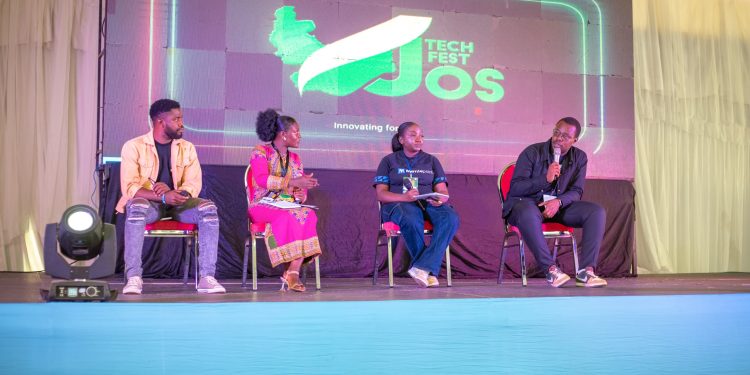At the recently concluded Jos Tech Fest 2024, a panel discussion titled “Fintech Inclusion in Northern Nigeria” drew attention to the critical need for expanding financial technology solutions to underserved regions of the country. The session brought together industry experts, tech enthusiasts, and business leaders, including Nuel Umahi, a representative from CrestHub, who passionately advocated for targeted fintech strategies to unlock the region’s economic potential.
The Promise of Fintech in Northern Nigeria
Despite Nigeria’s position as Africa’s fintech leader—boasting a $2 billion market as of 2022 and a projected annual growth rate of 12%—the benefits of this growth have largely bypassed Northern Nigeria. According to statistics, the region remains home to 35 million unbanked adults, a staggering figure that highlights the financial exclusion many communities face.
Panelists noted that while mobile penetration across Nigeria stands at approximately 80%, rural northern areas lag behind in both digital literacy and access to reliable infrastructure.
Umahi pointed out: “Fintech inclusion isn’t just about financial services; it’s about creating access and opportunity for people who’ve been historically left out of economic conversations”.
Challenges to Address
1. Lack of Financial Literacy: Many rural communities in the north remain unaware of digital banking tools and their potential benefits.
2. Connectivity Issues: Poor internet access and inconsistent electricity hinder the use of mobile banking apps and digital solutions.
3. Cultural and Trust Barriers: Umahi highlighted how distrust in formal financial institutions has discouraged adoption in certain areas.
4. Limited Funding for Startups: Northern tech ecosystems, like those in Jos, face significant funding challenges compared to hubs in Lagos or Abuja.
What Fintech Can Solve in Northern Nigeria
The discussion underscored the transformative potential of fintech in tackling the region’s socio-economic challenges:
Agricultural Financing: With over 70% of Northern Nigeria’s population engaged in agriculture, fintech platforms could provide microloans, enabling farmers to purchase seeds, fertilizers, and equipment.
Women Empowerment: Many women-run small-scale businesses but lack access to credit. Digital wallets and microcredit schemes could empower them economically.
Market Access: Digital payment systems can connect rural farmers and artisans to broader markets, eliminating traditional bottlenecks.
Youth Employment: A robust fintech presence could spur job creation, both directly in tech roles and indirectly in industries it supports.
Umahi shared an example from CrestHub’s work: “We’ve seen young entrepreneurs in Jos using mobile payment systems to build thriving small businesses. The ripple effect is real—it’s employment, it’s education, it’s empowerment.”
The Path Forward
Panelists proposed several strategies to ensure the successful implementation of fintech solutions in Northern Nigeria:
Partnerships with Local Leaders: Engaging traditional rulers and community influencers to build trust in fintech systems.
Government Support: Implementing policies to improve digital infrastructure and provide incentives for fintech startups to operate in underserved areas.
Education Initiatives: Launching campaigns to increase financial literacy, particularly among women and youth.
Public-Private Collaboration: Encouraging partnerships between established fintech companies and local startups to scale innovative solutions.
Conclusion
The conversation at Jos Tech Fest 2024 illuminated the urgent need for fintech inclusion in Northern Nigeria, not just as a means of financial growth but as a tool for societal transformation.
As Umahi aptly concluded, “Northern Nigeria has the numbers, the talent, and the need. Fintech is the bridge we need to connect these elements and drive real development.”
With continued focus and collaboration, the dream of a financially inclusive Northern Nigeria might not be as far off as it seems.

































